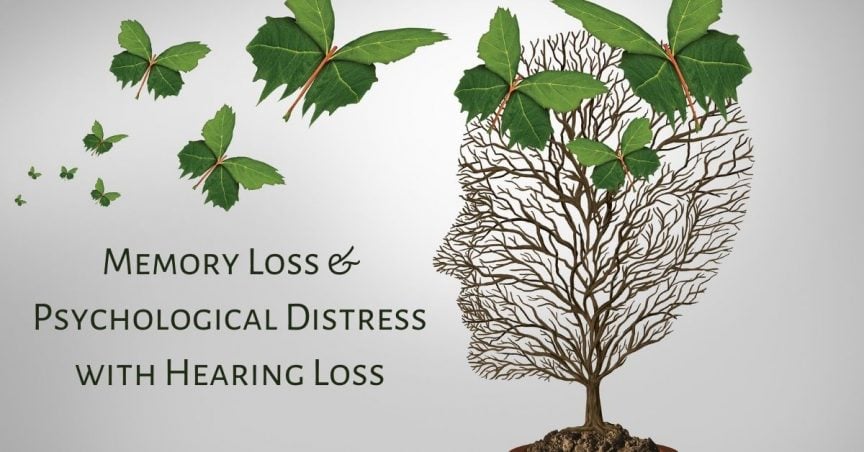- The Emotional Journey of Accepting Hearing Loss - October 25, 2024
- Making a Style Statement with Hearing Aids This Fall - October 15, 2024
- Fireplace Safety and Hearing aids - October 4, 2024
Hearing loss affects more than just your ears. When you have trouble hearing, you may find yourself struggling to remember things, or feel more anxious or sad than usual. In fact, hearing loss is linked to both memory loss and psychological distress.
Studying Memory Loss, Psychological Distress, and Hearing
Researchers have been looking at some of the effects of untreated hearing loss. A team at the University of Tsukuba, Japan, published a study about hearing loss in 2019 that shows some of the negative consequences of untreated hearing loss. They looked at data from over 130,000 older adults in Japan to find out what really happens when you have hearing loss.
Are Hearing Loss and Memory Loss Connected?
The Japanese researchers found a significant link between hearing and memory loss. They discovered that 37.7% of older adults with hearing loss also had memory loss! These seniors all reported trouble recalling information or facts. Only 5.2% of older adults with normal hearing reported memory loss. If you have hearing loss, you’re more likely to have memory loss. Untreated hearing loss is linked to difficulty remembering things like where you left the keys, or what time you have an appointment.
How Hearing Loss Can Affect Memory
Hearing loss doesn’t necessarily cause memory loss, but it can make it much harder to remember things. Think back to a conversation you had when someone was telling you some important information. You were straining to hear and doing your best to follow the conversation. While you were struggling just to understand the words, your brain was completely overloaded. There wasn’t a lot of energy left over to help you convert the sounds into meaningful sentences, or store the information in your long-term memory.
As well contributing to the lack of brain power, all that straining to hear can cause listening fatigue and overall exhaustion. When you’re tried it’s harder for you to keep up with what’s being said or form new memories. This can weaken some of the neural networks in your brain and increase your risk of dementia or Alzheimer’s disease.
How Hearing Loss Can Cause Psychological Distress
The Researchers in Japan also studied how hearing loss is linked to psychological distress. Among seniors with hearing loss, 39.7% of the older adults said they have some psychological distress! However, among seniors with normal hearing, only 19.3% reported psychological distress. This study shows just how important hearing is to our mental health.
Think about the last time you saw your friends, or had dinner with your family. When you have hearing loss, social events can be challenging. You have a hard time hearing what’s being said, and you feel embarrassed asking people to repeat themselves. People with hearing loss often stay at home, and report high rates of social isolation and sadness. In fact, older adults with hearing loss are more likely to struggle with anxiety, stress, loneliness, and even depression.
Treating Hearing Loss Improves Your Quality of Life
Have you noticed any changes in your memory or psychological well being? Consider your hearing health. If you’ve been straining to hear during conversations, asking people to repeat themselves, or turning up the volume on the TV, you probably have hearing loss. This could be causing the changes in your memory or your mental health.
Hearing aids can help! When you treat your hearing loss with quality hearing aids, you’ll be able to hear all the sounds in your environment without straining to hear. You can follow conversations, hear the first time someone asks you a question, and enjoy effortless hearing without straining to hear or overloading your brain.
Hearing aids will also help you stay more social. When you find the perfect hearing aids, you’ll easily hear conversations, even in places with a lot of background noise! You’ll enjoy meeting friends for dinner, or going to an event with loved ones. Staying social will also lower your risk of psychological distress.
Today’s hearing devices have a range of programs and settings to help you hear in restaurants, in auditoriums, and when you’re talking on the phone. Find out more about your perfect hearing aids and see how treating hearing loss will improve your quality of life.

